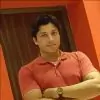The Premier Hockey League (PHL) is a four year old domestic field hockey tournament in India, conducted by Indian Hockey Federation (IHF) with active support from sports news channel ESPN India. The tournament was initiated to revive interest in the sport which was losing spectator interest to cricket in recent times. Hockey is India's National Sport, with the country having won a record eight Olympic Gold medals and having lifted the World Cup once.
One of the main reasons for the waning popularity of the existing domestic competition was the rise of corporate teams such as Indian Airlines and Punjab & Sind Bank which do not have a steady fan following. PHL is trying to change that by bringing in regional flavor. It fields teams from traditional hockey bastions such as Bombay, Punjab, Orissa, and Tamil Nadu, as well as from other places like Hyderabad and Bangalore, where it has got some fan following.
In the inaugural edition of 2005 which was held in Hyderabad five teams took part Hyderabad Sultans, Sher-e-Jalandhar, Bangalore Lions, Maratha Warriors and Chennai Veerans. 2005 title was won by Hyderabad Sultans and Chandigarh Dynamos got promotion to premier division as Chennai Veerans were relegated.
In the 2006 tournament, which comprised of two tiers, Bangalore Lions had won the premier division title and Orissa Steelers the first division title.
PHL 2007, played in two phases in Chennai and Chandigarh saw participation of seven teams -- Orissa Steelers, Sher-e-Jalandhar, Bangalore Lions, Hyderabad Sultans, Maratha Warriors, Chandigarh Dynamos and Chennai Veerans. Orissa Steelers won the title in 2007. Sher-e-Jalandhar was the runners up.
PHL 2008 was won by Bangalore Lions, they took home prize money of Rs.4 million. Chandigarh Dynamos finished second and Hyderabad Sultans ended up on third place.
The fundamental aberration from the format of normal hockey games is the number of sessions. A normal 70 minute hockey game includes two sessions, each of 35 minutes each. The PHL has four sessions each of 17.5 minutes. This format is tailor made to include more advertising time in order to generate funds. Teams are allowed to take time-outs to chalk out new strategies during the course of the game.
If the match is deadlocked after full-time, the number of players of each team is gradually reduced till a result is obtained. A win within full-time fetches three points, whereas a win after full-time fetches two points to the winning team and one to the losing team. Each team is also allowed to field up to five international players.
In addition, another feature of the PHL for the year 2007, has been the innovative Penalty shootout competition, modelled similar to the Major League Soccer penalty shootout. Each team will have five penalty shoot outs each where 5 players will play a one on one with the goal keeper of the opponent team. Each player will start with the ball on the 25 yard line and when the umpire blows the whistle player will have maximum of 8 secs to score a goal with only the goal keeper defending the goal. The player can take as many shots possible within the stipulated 8 secs.
Another interesting feature of PHL is timeouts, similar to basketball and volleyball. Each team will be allowed 2 x 120 second timeouts per team in regulation time. These timeouts will be mandatory and has to be taken once in each half of play. There will be a warning from the bench 5 minutes before the end of the second/fourth quarter if the team has still not availed of the mandatory timeout. 2 minutes from the end of the second/fourth quarter the timeout will be imposed by the technical bench if the team has still not availed of it.
In addition, each team will also be allowed 1 x 2 minute timeout which is not mandatory and could be taken at any point in time during the regulation time. Each team will also be allowed 1 x 2 minute timeouts which are non mandatory and can be taken at any point in time during the extra time period.
Experts accuse the Indian Hockey Federation of being to lethargic and bureaucratic in popularising the sport. Meanwhile the International Hockey Federation is keenly studying the format.
The problem is the governing body, the selectors, the bureaucrats!


























6